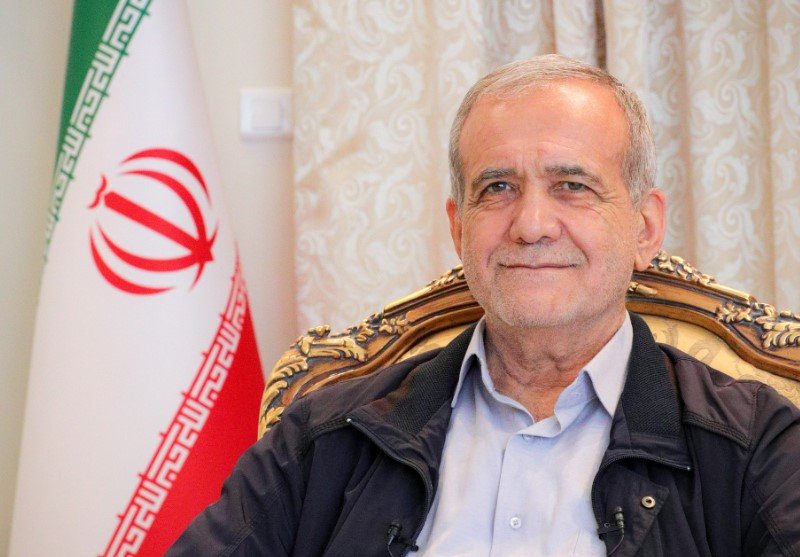Iran has ruled out direct negotiations with the administration of U.S. President Donald Trump over its nuclear program but signaled openness to indirect talks. Meanwhile, Trump has issued a stark warning, threatening military strikes and secondary tariffs if Tehran refuses to reach an agreement with Washington.
Tehran’s Stance on Negotiations
Iranian President Masoud Pezeshkian made the country’s position clear during a cabinet meeting in Tehran on Sunday. He confirmed that Iran had responded to a letter from Trump via Oman, rejecting direct talks while keeping the door open for mediated discussions.
“We responded to the U.S. president’s letter via Oman and rejected the option of direct talks, but we are open to indirect negotiations,” Pezeshkian said, as reported by the ISNA news agency.
While Tehran is not categorically opposed to discussions, Pezeshkian emphasized that Washington must first address past actions that have eroded trust. Specifically, Iran seeks reparative measures for Trump’s withdrawal from the 2015 Joint Comprehensive Plan of Action (JCPOA), also known as the Iran nuclear deal, which had previously set limits on Iran’s nuclear activities in exchange for economic relief.

Trump’s Warning: Military Action and Tariffs
In a phone interview with NBC on Sunday, Trump ramped up pressure on Tehran, issuing an explicit threat of bombings if Iran refuses to negotiate.
“If they don’t make a deal, there will be bombing,” Trump stated, making it clear that military action remains on the table.
Additionally, he suggested that economic pressure could be used as leverage, recalling measures taken during his first term. “There’s a chance that if they don’t make a deal, I will do secondary tariffs on them like I did four years ago,” he warned.
The Trust Deficit Between Washington and Tehran
Pezeshkian’s refusal to engage in direct talks reflects the deep distrust Iran harbors toward the Trump administration. The abrupt withdrawal from the JCPOA in 2018 left Tehran skeptical of Washington’s commitments, especially under a president who has previously dismissed diplomatic agreements.
Barbara Slavin, a fellow at the Stimson Center in Washington and a lecturer in international affairs at George Washington University, underscored Iran’s hesitance. “The Iranians are right to be distrustful, given Trump’s track record and withdrawing from a previous deal,” she told Al Jazeera.
For Iran, the memory of economic devastation caused by Trump’s “maximum pressure” campaign, which included harsh sanctions, remains fresh. The country is reluctant to enter into new discussions without assurances that any future deal will be upheld beyond the current administration.
Potential Mediation Channels
Despite the tense rhetoric, diplomatic intermediaries could play a role in facilitating indirect talks. Oman has historically served as a mediator between the U.S. and Iran, and recent exchanges suggest that Muscat could once again step into this role.
Other potential mediators include:
- European Union: Having played a key role in brokering the original JCPOA, the EU remains invested in diplomatic solutions.
- Qatar: A regional player with ties to both Washington and Tehran, Qatar has previously helped de-escalate tensions in the Middle East.
- Russia and China: Both nations have supported Iran diplomatically and may seek to leverage their influence to steer negotiations away from conflict.
However, whether mediation efforts will bear fruit remains uncertain. Iran’s leadership is wary of any agreement that lacks long-term U.S. commitment, while Trump’s unpredictable stance on foreign policy complicates any potential resolution.
Growing Regional and Global Implications
As tensions escalate, the situation has broader geopolitical implications. A potential military confrontation could have devastating effects on the region, impacting oil markets and global security.
- Energy Markets: Iran is a key player in global oil production, and any escalation could disrupt supply chains, leading to price spikes.
- Regional Stability: Neighboring countries, including Iraq and Saudi Arabia, could be drawn into the conflict if military action takes place.
- U.S. Allies: European allies remain invested in diplomacy and are likely to resist any American-led military intervention.
Iran’s strategy appears to be one of cautious engagement—willing to talk but only through trusted intermediaries. Trump, on the other hand, is doubling down on pressure tactics, raising the stakes with threats of economic and military consequences. The coming weeks will likely determine whether indirect negotiations pave the way for a diplomatic breakthrough or if tensions spiral further into confrontation.
